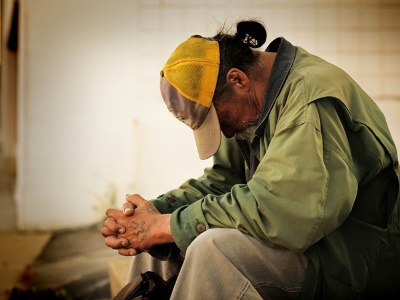Pay Day Loans Prey on the Needy
 On the face of it, pay day loans might not seem that bad. After all, if a person is in a jam and needs $100 to cover an unexpected debt, taking a tiny loan and repaying it, after fees, for $115 seems like an acceptable solution. The trouble, though, is that far too many people fall into a debt trap or, worse, effectively debtors’ prison.
On the face of it, pay day loans might not seem that bad. After all, if a person is in a jam and needs $100 to cover an unexpected debt, taking a tiny loan and repaying it, after fees, for $115 seems like an acceptable solution. The trouble, though, is that far too many people fall into a debt trap or, worse, effectively debtors’ prison.
Some US states still allow debtors to be jailed under certain circumstances.
Studies have shown that roughly half of all pay day loans go into default within two years and 19% of all initial pay day loans default (the apparent discrepancy here is because pay day loans can often be rolled over multiple times, so 19% of original loans default without ever rolling over and including those that are rolled over, about half default within two years). Worse, these studies have also shown that pay day loans make it harder to pay mortgages, increase bankruptcy filings, and, most surprisingly, are not actually for emergencies, but for meeting day to day expenses.
It’s Not Just Loan Sharks Offering Cash Advances
Most people think of pay day loan companies as fairly shady operations in low income areas. While many businesses offering these loans are suspect, some of America’s largest banks also provided them. Alongside their normal loans, Wells Fargo, US Bancorp and others had pay day loans.
Unsecured pay day loans can carry APRs approaching 300%.
Seeing such large banks offering such awful loans, we decided to engage corporate management. After discussing the situation and the problems inherent in pay day loans, management decided to stop making such loans.
Catholic Investor Advocacy: Moving Faster than the Government
 One of the important things about our advocacy work is how it enables us to get out ahead of an issue. While there are now a few laws regulating the pay day loan industry, it is still legal in most states.
One of the important things about our advocacy work is how it enables us to get out ahead of an issue. While there are now a few laws regulating the pay day loan industry, it is still legal in most states.
By being proactive in our advocacy, we can curtail problematic behaviors faster than the legal system can.
While we always want our laws to support morality, we’re happy if something problematic is legal but nobody does it. We’d much rather live in a society where predatory lending was legal but never practiced than one where it’s illegal yet common. Our advocacy work lets us change society ahead of legal changes. In the long run, it’s little, individual changes like this that will add up to massive societal change.

